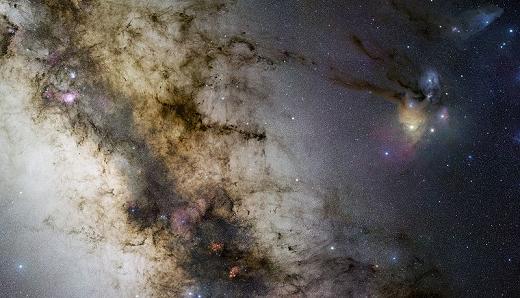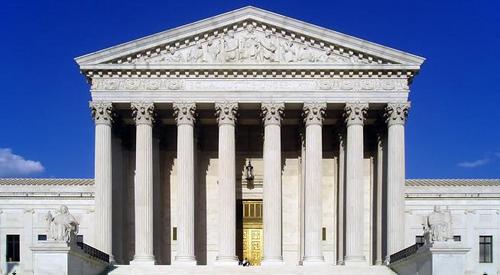
Every Monday, “Science and the Sacred” features an essay from
one of The BioLogos Foundation’s co-presidents: Karl Giberson and
Darrel Falk. Today’s entry was written by Karl Giberson.
“Christianity,” wrote someone who likes to comment under the cover of an alias on the Science and the Sacred blogs, “is extremely anti-science. Every single Christian belief, especially the disgusting childish belief in the Resurrection, is scientifically impossible.”
“The choice is Christianity or science,” wrote this poster who prefers his world black and white. “A normal person couldn’t possibly accept both.”
This reaction is standard “New Atheist” fare and we hear it from Sam Harris, Richard Dawkins, Daniel Dennet, Christopher Hitchens, PZ Myers and countless other self-appointed watchdogs of rationality.
I would be the first to say that science and Christianity are very different and, certainly, if one goes at Christianity with scientific tools, it certainly does not do as well as, say, magnetism, which holds up very nicely under scientific scrutiny. But Christianity is not like magnetism.
Accepting both science and Christianity is a bit like accepting that the earth is both round and in the Milky Way galaxy. For most of human history we did not know about galaxies; as they gradually came into view a century ago, we learned that there is much more to reality than we thought. So we brought some new ideas into our worldview.
The belief that the earth is both round and in the Milky Way is not contradictory because they are different sorts of claims. One is a claim about shape, the other about location.
To be a Christian is to accept that there is another layer of reality that lies beyond the purely scientific. The evidence for this other layer is, of course, not like the evidence for magnetism or the shape of the earth. But it is not an unfounded belief, even from a scientific point of view.
Consider belief in God. Almost everyone throughout history, from Plato to Darwin believed in God, although Darwin developed some famous doubts along the way. Most people today believe in God, including a great many intellectuals. There are legitimate arguments for God’s existence, some of which are present on the BioLogos website. One may not find the arguments convincing–Sam Harris certainly does not–but many smart people who, unlike Sam Harris, actually finished their graduate degrees, do find these arguments helpful.
If God exists, then all kinds of things become possible. The reality of God implies that the scientific picture is not all there is. Once we know that reality extends beyond science, new questions emerge: What is this reality that we call “God” like? Is God a super-intelligence? Can God communicate with beings like us? Is God powerful? Is God personal?
A reality that includes God is very different from one that does not. Consider the following analogy. Suppose you were the first human explorer on Mars. You examine terrain and weather and soil. But you are puzzled by what look like gardens and at night you hear what sounds vaguely like singing. Sometimes you find perfectly round granite marbles. These puzzling features of your experience make no sense.
But now suppose you come across the brow of a hill and discover a village, populated with creatures that are scurrying about in purposeful ways. Martian reality has just expanded dramatically. All manner of things have just become possible. Those gardens actually were gardens, those spheres were indeed artificially produced and that singing was singing.
The kinds of things that can happen in any world, from fictitious places like Hogwarts, Middle Earth, or Narnia, to real places like Mars or Earth, depends, in a detailed way, on what exists in those worlds. Narnia did not have airplanes so the children could not fly back and forth. Earth does not have time machines, and Mars probably does not have creatures that would cultivate gardens. But Narnia did have an Ice Queen, the earth does have jumbo jets, and Mars has a rover that NASA has sent there.
What is the nature of our reality if God exists? What kinds of new things are possible? What puzzling and unbelievable stories from the past become plausible if God exists? What claims made by people today have to be taken seriously if God is real?
The central idea of Christianity–that God raised Jesus from the dead–is, as our critic above has claimed “scientifically impossible.” In fact, I think our mystery critic may not be aware that this is hardly a controversial claim. I am unaware of anyone who does not think the resurrection of Jesus is scientifically impossible. In a world where science is the only reality, such an event would indeed be impossible. Likewise, on a planet with no creatures it would be impossible to encounter gardens, marbles and music.
But, if God exists, might there be events that science cannot explain? The answer is obvious. So, when we read in the Bible that some people in the first century saw a resurrected Jesus and concluded that God had worked a miracle, we must not dismiss this as “childish.” The biblical accounts certainly do not sound childish. First century Palestine is not Narnia.
This is not to say, of course, that God’s existence provides a license for unbridled speculation, or somehow validates all past and present claims of miracles. It does, however, open reality to possibilities that go beyond what science can explain.

